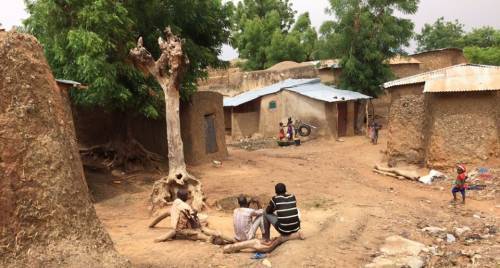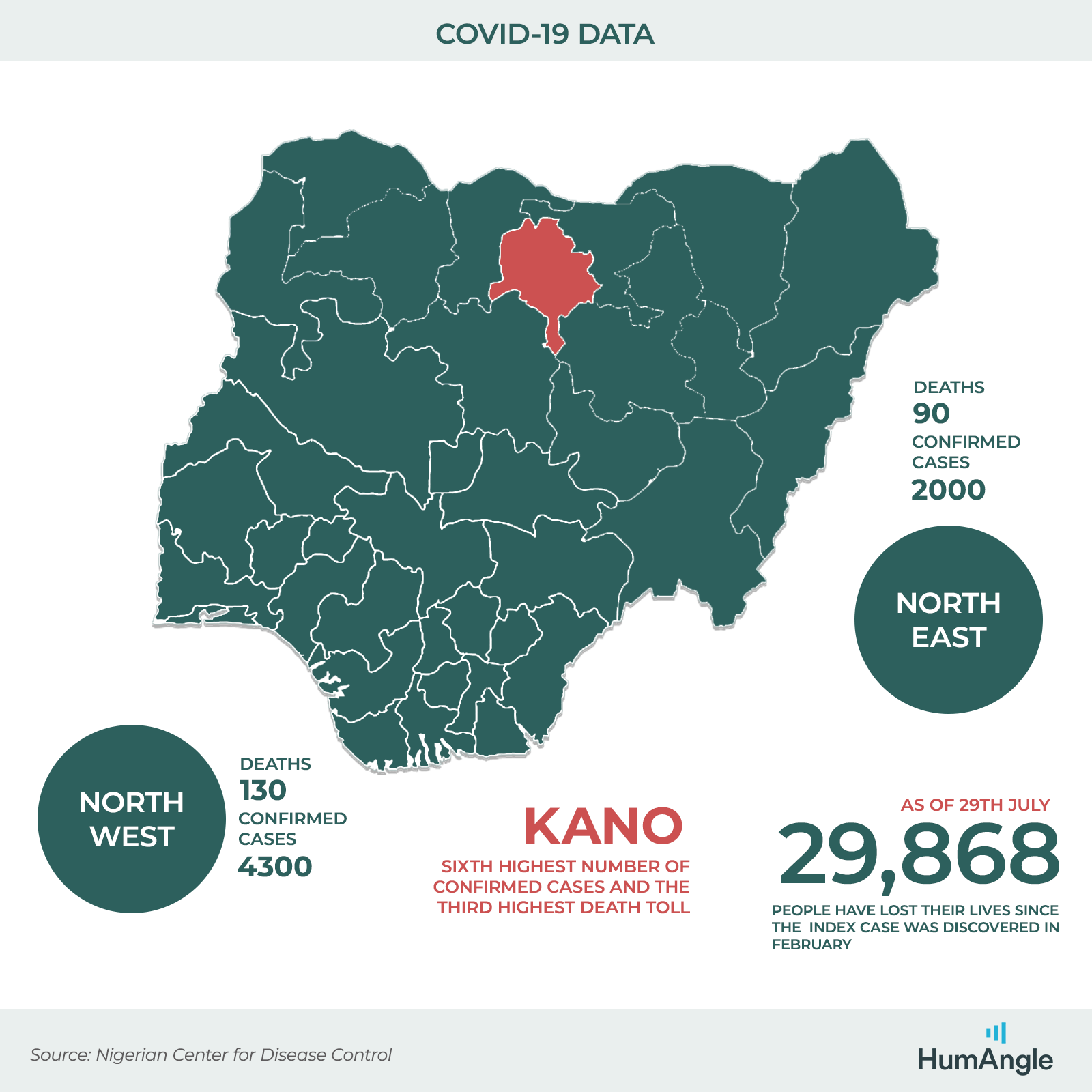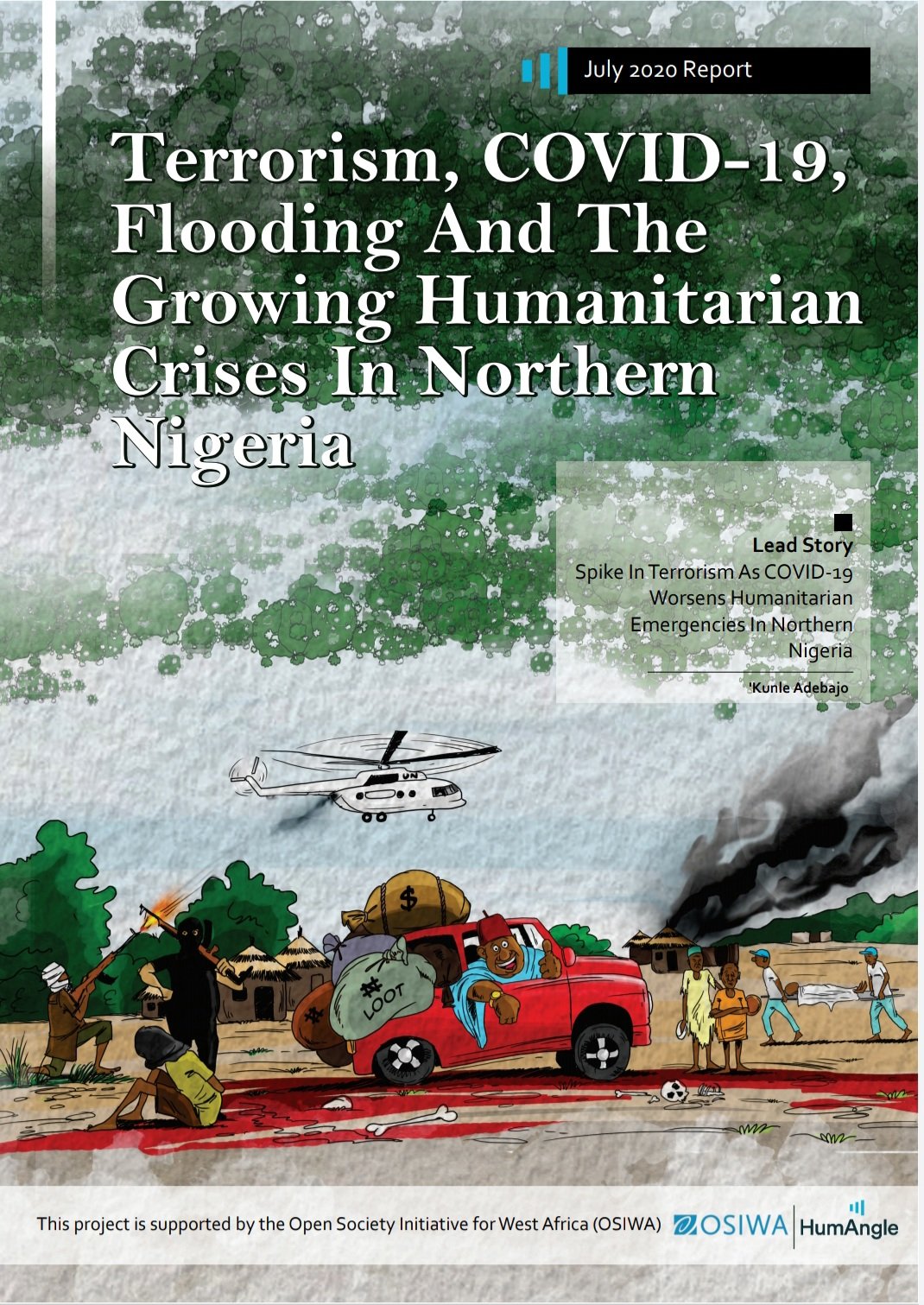Katsina: Fear Of Terrorism, COVID-19 Discourage School Reopening

The Federal Government’s directive on July 27 that schools should reopen in Nigeria for exit classes was met with admiration among families, but several others remain fearful of the step.
There are general concerns as to how the various schools across the country will keep the students within the safety of the ravages of the coronavirus pandemic. In parts of the country, the worry seems to revolve around plugging each school within the necessary COVID-19 precautions.
In the northern parts of the country, however, the concerns appear to be strikingly different. For them, the fears are more acute because of the endemic insecurity and often targeted attacks on secular schools.
The Federal Ministry of Education issued a set of guidelines for schools to reopen, most of which are COVID-19 safety precautions. Teachers and students are to prepare for the examinations within two weeks with the tests commencing on August 17.
But several of the exit class students from some of these states may have become refugees in far-flung places, some of which are across the border in Niger Republic. For instance, just like other states in the Northwest, Katsina State has been a hotbed of escalating terrorist attacks.
Terrorist attacks in communities of Faskari, Dandume, Batsari, Safana, Kankara, Sabuwa, Dan-Musa, Matazu and Jibia local government areas of the state have forced over 20,000 out of their homes to safer places within the state and nearby territories, HumAngle learnt.
In recent months, there have been several more Internally Displaced Persons (IDPs) camps at Batsari, Faskari and Dandume, where the people, mostly women and children, are living in squalor, a HumAngle investigation revealed.
Thousands more are taking refuge with relations or in rented apartments outside their communities.
Majority of the people are afraid to send their children back to school because of the fear of attacks, especially in the frontline local government areas where kidnapping, killing and raping of women are fast becoming a norm.
Alhaji Hamisu Labaran, a father of three girls attending Daudawa Government Girls’ Science Secondary School, expressed fear about the frequent attacks in the area to HumAngle.
The school is a boarding facility that is located in one of the remote hotspot terrorist areas in the Faskari Local Government Area.
“To me, it is suicidal to allow my three female children to resume now in that community where bandits find it very easy to unleash attacks.
“We heard how they raped women and kidnapped people in the community; I will rather leave them with me here than risking their lives,” he added.
A mother, Amina Halliru, said, “To be sincere with you, my female children are not going anywhere except I am fully convinced about the upgrade of the security situation in the state.
“It seems the government is not ready to contain the conflict so why would I send my children back to school when I don’t have money to pay for ransom if anything happens?” she asked.
According to Halliru, great concern should be raised over the sudden resumption notice, especially as most of the boarding schools in the state are located around attack hotspots.
A student of Government Girls School, Kaboom, Halima Garba Malumfashi said, “I am afraid to go back to school now. Our school is located in a remote area where people are always fleeing because of the frequent attacks in the community.
“We have been living in fear even before the escalation of the conflict because some unknown people were making attempts to enter our hostels at night.”
Mixed feelings over COVID 19
“Some parents might not be willing to let their children come to school because of fear of the virus,” an employee of the Zonal Education Authority, who pleaded anonymity, said.
“Can the school be fumigated and disinfected before the resumption? In fact, how many schools can afford that or can the schools comply with global standards and federal government guidelines against COVID 19?” he asked.
“Honestly speaking, the schools are not ready to carry out these tasks within this short notice.
“As for me, I cannot send my children back to school now.
“For the schools that have agreed to open within the short notice, the teachers and students must ensure they use nose masks, practice handwashing and limit outdoor activities and if possible limit learning hours as well as ensure social distancing,” he added.
A parent, Chidinma Ibere, said, “The major challenge is maintaining social distancing in this pandemic and other protocols for suspected COVID-19 cases.
“Most of the classrooms are too small to observe social distancing during the examination,” she said.
Also, Captain Usman Balarabe, a retired military officer, shared his fears on the sudden directive to reopen schools in Katsina State.
“Why will they open schools now? The cases are getting higher daily, and the menace is now in community transmission.
“I am not in support of the school reopening now. In fact, I will not send my children to school until the government provides all the necessary precautionary measures to avoid the transmission,” he said.
Another stakeholder, Solomon Haruna, noted that funds were limited to fumigate and produce masks for teachers and students.
Meanwhile, some parents in the state cheered for the reopening of the schools.
Continue reading …
Support Our Journalism
There are millions of ordinary people affected by conflict in Africa whose stories are missing in the mainstream media. HumAngle is determined to tell those challenging and under-reported stories, hoping that the people impacted by these conflicts will find the safety and security they deserve.
To ensure that we continue to provide public service coverage, we have a small favour to ask you. We want you to be part of our journalistic endeavour by contributing a token to us.
Your donation will further promote a robust, free, and independent media.
Donate HereStay Closer To The Stories That Matter






